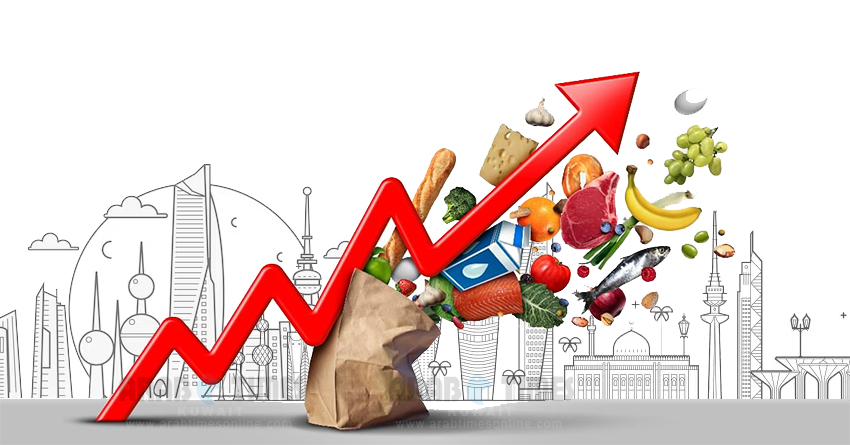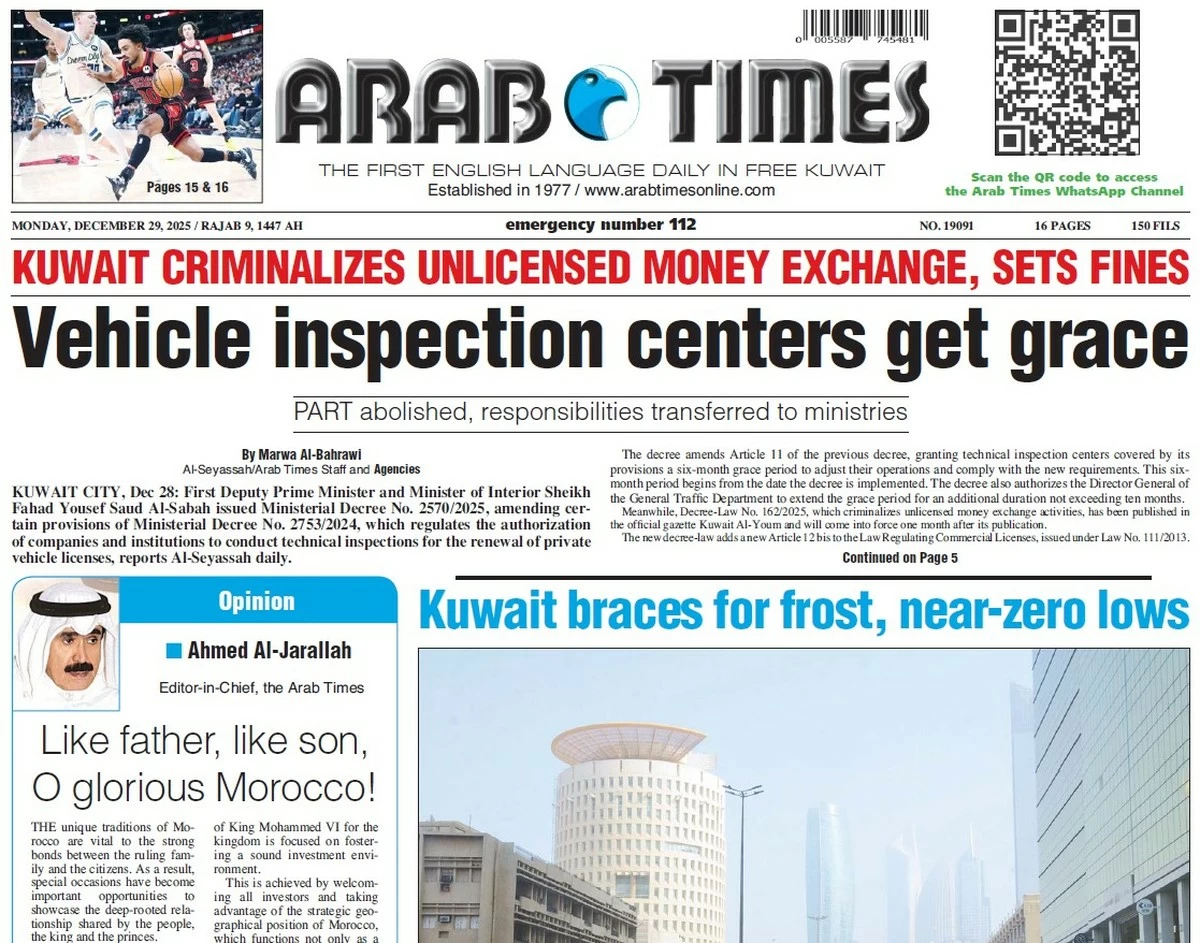23/09/2023
23/09/2023

KUWAIT CITY, Sept 23: According to a government report, multiple significant local factors have contributed to the State of Kuwait's inflation rate rise to approximately 4% in 2022. These factors include heavy reliance on imports of goods and services, accounting for 90% of the reliance. Moreover, the rise in purchasing power due to government-approved financial distributions, such as buying earned leave for government employees and others, has played a role. Additionally, a shortage of professional workers has impacted this increase, as reported by Al-Qabas daily.
The report, issued by the Economic Development Department of the General Secretariat of the Supreme Council for Planning and Development, highlighted key sectors experiencing the highest inflation rates in the past year -- education 12.1%, food and beverages 7.4%, clothing and apparel 5.6%, and transportation 4%.
Moreover, the report emphasized certain economic, commercial, and monetary policies and decisions made by the government that have helped mitigate the rise in inflation. Diversifying income sources, maximizing non-oil revenues, ensuring self-sufficiency for the population regardless of future global uncertainties, and making optimal use of rising oil prices through strategic investment projects were among the recommended strategies. Encouraging local talent and embracing their skills within Kuwait, enhancing the role of the private sector, and reducing obstacles to foreign investment were also seen as vital steps.
Looking ahead to the years 2023 to 2026, the report outlined various scenarios regarding oil prices and their potential impact on inflation rates. The most optimistic outlook assumed global crude oil prices at $80 per barrel, projecting gradual annual increases of about $10.
These scenarios anticipate inflation growth rates between 2.6% to 3.2% during 2023-2026, indicating a slowdown in inflation's growth rate in the medium term. This projection is influenced by expectations of gradual interest rate hikes by the Central Bank of Kuwait and governmental measures aimed at curbing future inflation through a strategic plan, strengthening essential security systems for food, medicine, and water.
Conclusively, the study emphasized the imperative of robust reform measures to diversify income sources across all sectors, reducing dependence on oil as the primary income source. Activation of development plan policies and their successful implementation through collaborative efforts between the public sector, private sector, and civil society was also underscored as essential for achieving economic sustainability and growth.
The most important supporting policies are:
1 - Housing services
-- Finding sustainable alternatives to the current housing system, to ensure everyone’s access to housing.
2 - Health
-- Increasing the number of health cities
-- Improving the capabilities of health professional staff.
-- Health literacy.
3 - Food, beverages, clothing, restaurants and hotels
-- Developing large-scale, highly efficient production economies.
-- Improving the ease of doing business to establish, operate and expand companies.
-- Supporting and promoting foreign direct investment by facilitating entry into the national economy.
-- Developing innovative products and services by developing an integrated environment for technology, innovation and knowledge.
-- Increasing the impact of projects and small and medium-sized companies through financing, sponsoring and expanding their scope.
4 - Education
-- Aligning the outcomes of the educational system with the needs of the labor market to provide students with the required skills.
-- Improving the national education system, including the curriculum, teachers’ skills, and teaching methods.
-- Encouraging learning science, technology, engineering and mathematics to lead towards a knowledge economy and establishing academic partnerships with prestigious international institutions.
5 - Transportation
-- Improving the efficiency of land, air and port transport infrastructure, strengthening current transport systems using smart technologies and facilitating import and export procedures.
6 - Entertainment and culture
-- Developing cultural and historical sites, enabling access to them and managing them sustainably.
-- Increasing the attractiveness of Kuwaiti arts and culture to enhance media production.
-- Increase hosting and participation in international events and conferences.
7 - Cigarettes and tobacco
-- Implementing a tax system on selective goods and value added tax.
-- Improving the general health of young people by combating drugs, reducing accidents on roads and supporting sports.
8 - Communications
-- Digital transformation of government operations and services.
-- Expanding the role of the private sector in providing government services.
-- Developing the information and communications infrastructure to transform into a knowledge-based digital economy.


